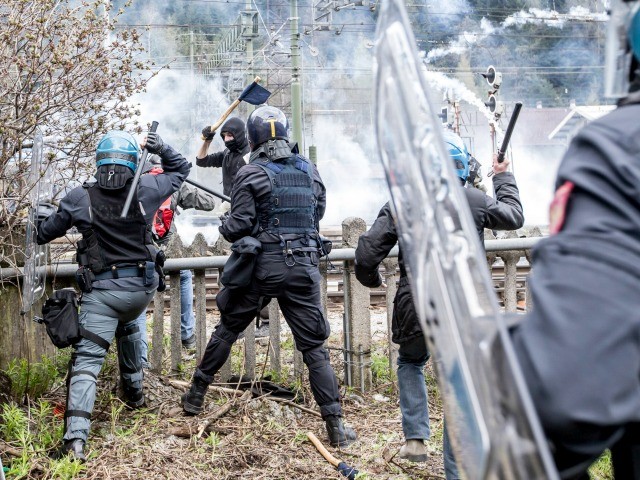Austrian authorities have more than doubled the number of police officers monitoring traffic in the immediate vicinity of the Brenner border, to prevent unauthorized migrant entries into Austria.
Fifty new police have been added to patrols, bringing the total number to 80. The officers have begun carrying out systematic stops of vehicles along the highway, major arteries and on trains for the purpose of document checks, according to the Police Directorate of the Tyrol region in southern Austria.
The authorities have also deployed policemen near the Schönberg toll station, where motorists traveling on the highway must stop to pay a toll some 20 miles from the border before crossing the Europa bridge. Others are stationed on the main road running from Gries am Brenner, the first stop after the Italian-Austrian border, to Innsbruck to monitor passing vehicles.
Police authorities have insisted that strictly speaking the new measures are not checkpoints or border controls, but systematic surveillance in accord within the Schengen agreements. The additional controls carried out on international and regional trains are meant “to curtail the number of people who enter Austria irregularly, according to statements from the Tyrolean police.
In presidential elections this week, Green Party candidate Alexander “Sasha” Van der Bellen narrowly defeated the Freedom Party candidate Norbert Hofer, in a deeply divided country. The final runoff was held after Austria’s two mainstream parties—the center-left Social Democrats and center-right People’s party—were voted out of the elections for the first time since the Second World War.
Van der Bellen trumpets his status as a child of immigrants, and announced that as president he will champion the idea of a fence-free “United States of Europe.”
Austrian Chancellor Christian Kern has said that he understands the message of the polls and the growing hostility toward Europe’s immigration policy, but he is still pushing forward a plan to grant work permits to immigrants after only three months, as is currently done in Germany. The Chancellor has, however, reiterated Austria’s declared annual asylum quota of 37,500 new entries into the country.
Follow Thomas D. Williams on Twitter Follow @tdwilliamsrome
//
